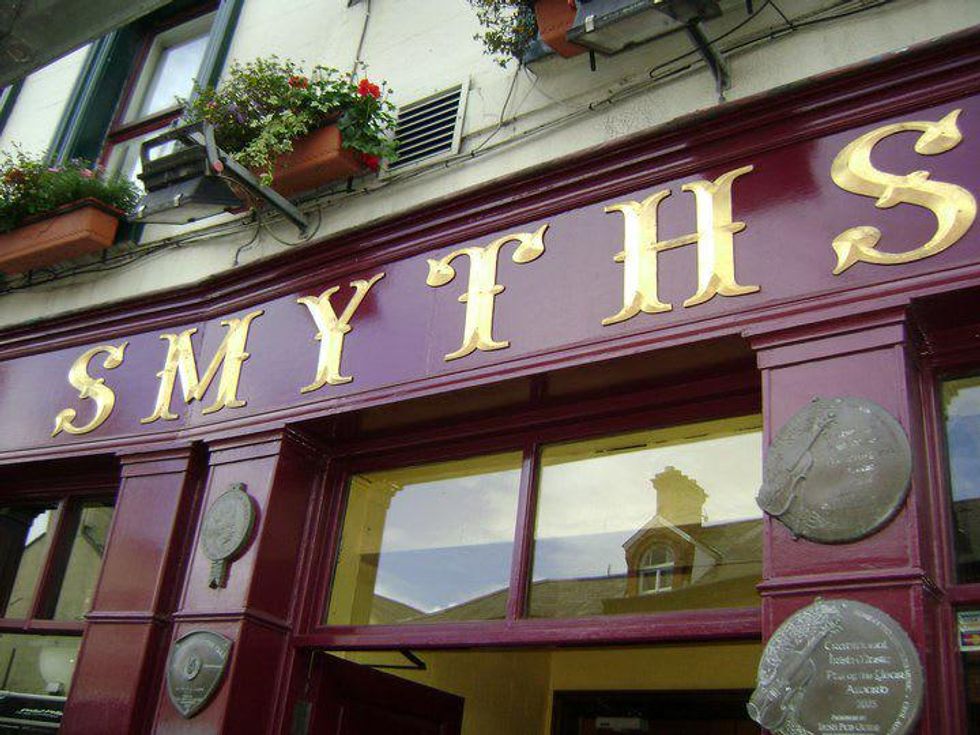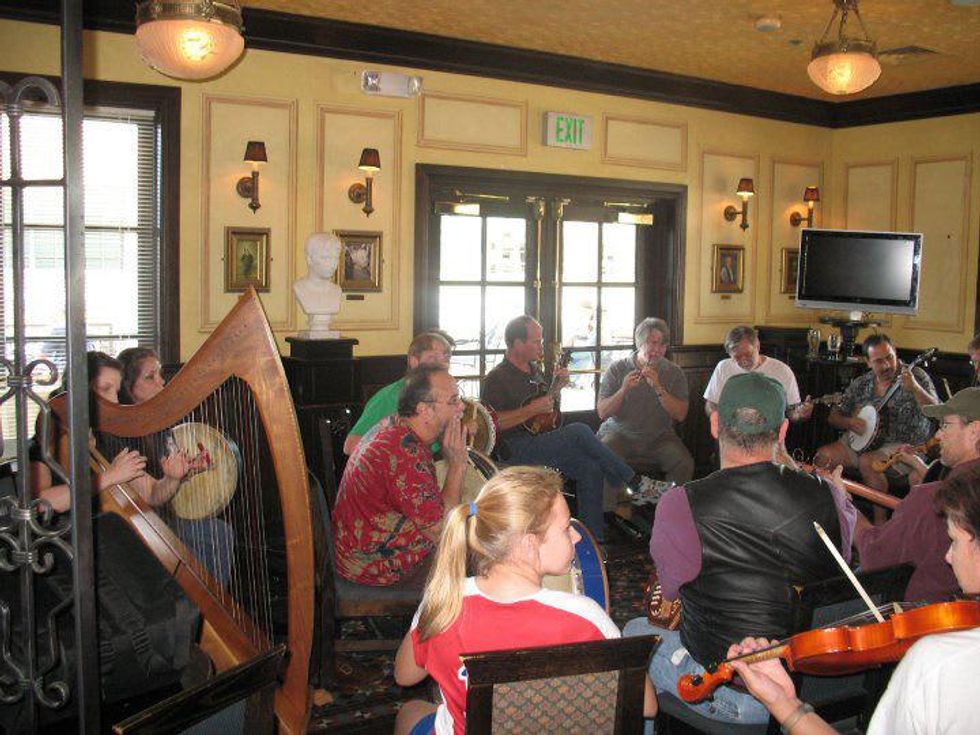Drinking Diaries
An overwrought consideration of what makes real Irish pubs so great
Two years ago, in an attempt to learn some of the wisdom that Joyce and Wilde and Beckett had found by the Liffey, I spent a summer living south of the canal in Dublin.
I went with the intention of finding the secrets hidden on Ragland Road or by the Irish countryside that inspired so many great writers. I had some romantic ideal of meeting an Irish gal and getting caught up in a whirlwind affair of afternoons spent exploring Phoenix Park and weekend trips to Cork and Galway. At the end of the summer, I would leave her to head back to America, full of anecdotes for that first great book and lots of bad poetry that would make Steve Earle wince.
The hospitality and the Guinness and the common nooks and platforms made each pub in Ireland at once familiar and mysterious.
Instead, I spent most of my time in pubs in Ranelagh and Rathmines downing pints of Guinness and wondering if it ever, ever stops raining in Ireland.
There were places like Smyth's, Bleeding Horse and countless others, filled with nooks and crannies that shifted the prism a bit every time you moved. Groups would swell and dwindle as the nights progressed, necessitating a move that would shift the prism through which you saw the pub.
The music sounded different, and entire sections disappeared as others came into existence. Each pub contained multitudes of worlds not five feet away from one another, all dripped in mahogany and Power Irish Whiskey mirrors and blended together to become as essential to Irish identity as resenting the British.
It never hurt that the Irish were exceedingly nice people — before I mentioned that I was from Texas (most aren’t big fans of Dubya) and after, when I said I was from Dallas (older folks loved the show, apparently).
The hospitality and the Guinness and the common nooks and platforms made each pub at once familiar and mysterious. Every pub was designed for exploration, and out of exploration came conversations with strangers or a secret spot to hide from the outside world.
Each pub became what you wanted it to be and it didn’t ask anything in return except to keep it relatively civilized. There were no gimmicks or selling points or anything outside of, “Here are a bunch of places to sit with friends while drinking beer or whiskey or both. Get on with it.”
Trinity Hall allows its patrons to sit and engage in a tête-à-tête that could range from something as trivial as what to do the next day to something as serious as what to do in the next life.
After that summer, I returned to Texas an addict in dangerously short supply. It’s not that Irish pubs are rare in Texas. Well, they’re not common in the way they are in Boston, but it doesn’t take a hunt to find one. The problem is that a lot of Irish pubs don’t seem to care to keep the style alive.
They do tend to get the layout right. But places like Idle Rich, which I like, sometimes, and Blackfriar, which I like a little less, operate the same way that any bar does, packing in so many people that your nook is rendered nookless because there’s a group of patrons standing right in front of your table.
And not all Irish pubs in Ireland follow the model either. The Temple Bar is a tourist trap that thrives on packing in as many non-Irish folk as possible. But following that lead would be akin to designing a German beer hall after the setup at Epcot: You could do it, but at some point you just end up with an American bar with Irish wallpaper.
The best Irish pub in Dallas shockingly resides in Mockingbird Station, next to a craft cocktail bar and an artsy movie theater. Trinity Hall has the design down, but the authenticity separates it. You’ll find traditional Irish music, a thriving soccer fan base that takes over when games are on, and a refusal to serve Irish car bombs — which is not something you should ever attempt to order at a pub in Ireland unless you’re a very pretty woman.
But, most important, it’s a place for conversation and discovery. Trinity Hall allows its patrons to sit and engage in a tête-à-tête that could range from something as trivial as what to do the next day to something as serious as what to do in the next life.
The point is, I’m not shouting at my friend that I think there might be an open table over there, and if you want to go grab it, I’ll get the next round. I’m actually enjoying myself.
Nostalgia can be a dangerous fellow to hang around — what compulsion is there to move forward when you’re desperately clinging to your past? I’m wary of doing that too much, but there are some places and experiences that are impossible to forget, like your first love or your first heartbreak or how summer feels in the dusk.
That’s why I will always remember that first night in Dublin. My flatmates and I walked along the Appian Way in the rain to Smyth's on Ranelagh Road, where we sat down at one of the tables with some Guinness and started to get to know one another.


